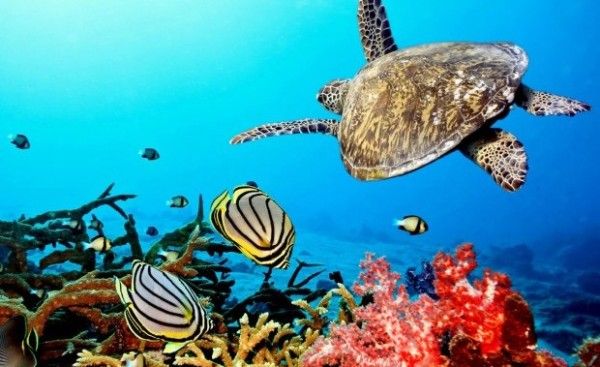
The alarm throws a WWF report and concerns, in particular, national parks to coral reefs. Threats to humanity are called oil and mining. And, unfortunately, it is growing data and especially with regard to countries in developing countries.
70 sites at risk . 31% of natural areas World Heritage would, in fact, at risk of drilling for oil, gas and minerals. A total of 229 coral reefs, national parks, nature reserves that are counted today. And, in fact, 70 of them in danger. The alarm, however, was amplified by the fact that we talk about risk in growth. Just think of the 24% of a year ago.
Great Barrier Reef in Australia, for example, is one such site where the ecosystem would be in danger. Among the most at risk, according to the WWF, also Virunga National Park in the Democratic Republic of Congo, one of Lake Malawi, the Selous Game Reserve in Tanzania, the Wood Buffalo National Park in Canada and the Danube Delta in Romania.
“ The natural World Heritage sites, which cover less than 1% of the surface of the planet and have exceptional value in terms of species and landscapes, are at growing risk of exploitation and irreparable damage, which in turn damages the communities dependent on these places for subsistence “, warns WWF.
Of course, at the expense, even species animals. In danger, especially (and as always), the mountain gorillas and African elephants, snow leopards, whales and sea turtles.
In Africa, more than 6 out of 10 stocks are threatened by ‘industry. From this flows the appeal WWF aimed at companies and governments to consider the creation of areas “no-go”, or areas off-limits to the exploitation of resources and sites within areas protected.
“ We are going to the ends of the earth to grab hold resources that are becoming increasingly difficult to extract “, David Nussbaum, chief executive of the NGO. “ Some of the most precious in the world are threatened by destructive industrial activities. Protecting these symbolic places is not only important in terms of environmental value, is essential for the survival and future of the people living there . “
No comments:
Post a Comment